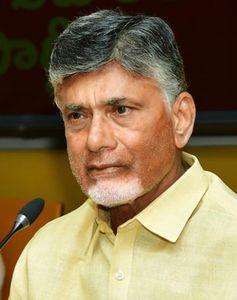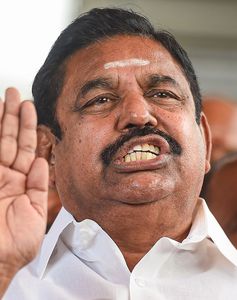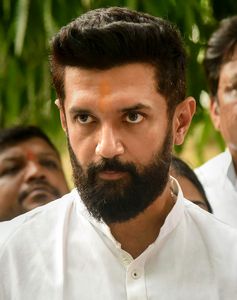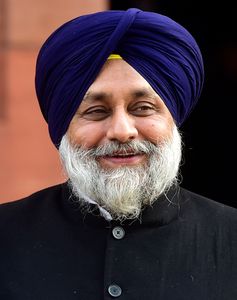THE SEASON of political realignments is here. With less than a year to go for the 2024 Lok Sabha polls, political parties are busy picking sides. With opposition parties banding together against the Narendra Modi government, the BJP is wooing its estranged allies, especially in opposition-ruled states. From the Telugu Desam Party (TDP) in Andhra Pradesh to the Shiromani Akali Dal in Punjab and a motley group of smaller parties in Bihar, there is an attempt to revive the spirit of the National Democratic Alliance (NDA), which completed 25 years this May. The shocker in Karnataka has only added to the urgency.
When BJP leaders A.B. Vajpayee and L.K. Advani formed the NDA in 1998 to take on the Congress, there were 24 parties in the fold. As the BJP began to aggressively expand its reach across the country, its relations with several allies, including the TDP, Shiv Sena, Janata Dal (United) and Akali Dal, soured, and many quit the alliance.
Now, after 10 years in power, the BJP is looking to foray into new areas, while retaining the old seats for a comprehensive win. But as the realignment talks progress with different political parties, some state units want to go solo as they think that allies may gain more at their expense. Also, the BJP needs to win the perception battle―that it has more parties on its side than the opposition. The sticking point though is who will get to play big brother.
This dichotomy is at play in states like Tamil Nadu, Punjab, Andhra Pradesh and Karnataka. In the Karnataka assembly polls, the BJP retained its vote share. The JD(S)’s vote share though dropped by nearly 5 per cent; the difference went to the Congress. A senior BJP leader attributed it to the perception that the JD(S) was soft towards the saffron party. “During the last Lok Sabha elections, we got over 51 per cent vote share and won 25 of 28 seats,”he said. “The votes were for Modi. The JD(S) was not in alliance with us.”
That perception is not unwarranted as the JD(S) had supported NDA’s presidential candidate, Droupadi Murmu, and even attended the inauguration of the new Parliament building―as did the Akali Dal, the TDP and the BSP―when most in the opposition boycotted it. The JD(S) faces an existentialist threat and needs to pick a side to survive. Recently, JD(S) patriarch H.D. Deve Gowda, when asked about allying with the BJP, had said, “Show me one party that has done politics without establishing some kind of relationship with the BJP.” The top leadership will have the final say, said BJP leaders.
But more than Karnataka, the BJP needs an ally in Andhra Pradesh, where the YSR Congress Party is in power. It already has Pawan Kalyan’s Jana Sena Party (JSP), but the actor-politician wants Chandrababu Naidu’s TDP, too, on board to avoid splitting of votes. The buzz around the three-party alliance grew stronger when Naidu recently met Home Minister Amit Shah.
Though TDP’s Rajya Sabha MP K. Raveendra Kumar said it was premature to comment on the alliance, he agreed that all opposition parties were working to avoid division of votes. “The state is in financial doldrums,” he said. “Law and order is out of hand. There is no development. There is only one thinking: how to get rid of the present government.”
The TDP and JSP may announce their alliance soon, and if the BJP joins them, then the state will see a three-cornered fight, with the Congress being the third key player. During the 2019 Lok Sabha elections, the TDP, Jana Sena and the BJP had contested independently. The ruling YSRCP had got nearly 50 per cent of the vote share, winning 22 of 25 seats, followed by the TDP (39 per cent). The JSP got more than five per cent and the BJP less than one per cent. As the Lok Sabha and assembly elections are held simultaneously in the state, the alliance would have an equal impact in both these polls. But before that, the BJP will have to forgive Naidu for walking out of the alliance and bringing a no-confidence motion against the Modi government in 2018, a first in 15 years.
The BJP’s hesitation to ally with the TDP could also be because of the YSRCP’s constant support to the BJP at the Centre and in Parliament. The BJP would need YSRCP’s support in the Rajya Sabha, where the NDA does not have adequate numbers, to get two bills passed―the Delhi ordinance on defining powers of the chief minister and the uniform civil code.
In the BJP’s expansion plans in the south, which has 130 seats, Tamil Nadu, where it is in alliance with the AIADMK, is crucial. The AIADMK won one of 39 Lok Sabha seats in 2019 and the BJP none. There have been murmurs of discord in the alliance owing to the BJP’s aggressive push to increase its base. The recent statement of state unit chief K. Annamalai on former chief ministers being convicted of corruption, seen as a dig at former AIADMK chief J. Jayalalithaa, caused a furore. The BJP subsequently issued a clarification. AIADMK spokesperson Kovai Sathyan said the controversy is over and that the alliance is strong. “Annamalai clarified that the AIADMK will lead the alliance in Tamil Nadu and we will win all the seats,” Sathyan said.
The BJP, meanwhile, is going all out to woo the state, from holding cultural programmes like Kashi-Tamil Sangamam to installing the sengol in Parliament. But Sathyan said, “The national party has to ride on the shoulders of a Dravidian party.” BJP general secretary C.T. Ravi, who is in charge of the state, countered that it took 50 years for Dravidian politics to take root in the society, and it will take time to be taken out. “The BJP is getting space inch by inch,” he said. “We may not be at the political centrestage, but people are taking notice. There will be a time when we will be centrestage.”
If the AIADMK and the TDP were the BJP’s earliest allies, its alliance with the Akali Dal helped bring normalcy to militancy-hit Punjab. The Parkash Singh Badal-led government was able to complete its term for the first time (1997-2002), thanks to the BJP’s support. The relationship endured the test of time, till the Modi government brought in the three farm laws. The massive protest from its core constituency―farmers―forced the Akali Dal to part ways. And then reality hit hard―both the parties fought the 2022 assembly elections independently and lost.
“There have been no talks till now. The BJP is the bigger party. The first move should come from them,” said Akali Dal leader Naresh Gujral, adding that with the laws being withdrawn, there was no point of contention between the parties. Following Badal’s death in April, Modi, Shah and BJP president J.P. Nadda paid personal visits to the family, thus soothing any rancour over the breaking of alliance.
There is a lesson for the former allies in the results of the Jalandhar Lok Sabha bypoll. The AAP won the seat, a Congress stronghold, securing more than three lakh votes. The Congress got 2.43 lakh votes. The BJP, which went solo, got 1.34 lakh votes, and the Akali Dal, in alliance with the BSP, got 1.58 lakh votes. If the BJP and Akali Dal had joined hands, they could have come a close second.
“Jalandhar showed us that if both the Akali Dal and the BJP come together, we will be a formidable force,” said Gujral. Union Minister Hardeep Puri of the BJP, however disagreed. “It is a simplistic reading of the results,”he said. In 60 booths where the AAP got 31 per cent votes, the BJP got 29 per cent votes, he explained. “The problem with our old alliance was that during (assembly elections), we got around 23 of 117 seats,” he said. “We did not have a presence in the rural areas.” He added that the BJP was now making its presence felt in rural areas.
The BJP is also reaching out to the Sikhs through programmes like gurudwara visits and opening of the Kartarpur corridor. While Sikh leaders from the Akali Dal and the Congress have joined the BJP, it will still need an ally. BJP spokesperson R.P. Singh said he did not see an alliance with the Akalis before the 2024 elections.
The BJP’s reluctance in ceding space to an ally comes from its Maharashtra experience. It was always a junior partner to the Shiv Sena. But when they contested independently in 2014, the BJP was able to grow like never before and had its first chief minister in Devendra Fadnavis.
The BJP will push till it gets a bigger share where it has marginal presence. And where it is in pole position, it can look the other way, as is happening in Haryana. The Manohar Lal Khattar government is in alliance with the Jannayak Janta Party, but when it comes to Lok Sabha, the BJP wants to go alone. Shah, during his tour to the state recently, asked people to give all the 10 seats to the BJP as they had done in 2019.
Another key state where the BJP is pushing to get more allies is Bihar, where smaller parties have captive caste vote banks. Leaders like Jitan Ram Manjhi, Chirag Paswan and Upendra Kushwaha are likely to return to the NDA fold.
Over a dozen parties had left the NDA after Modi came to power in 2014. Though it hurt the BJP, it was able to improve its record in 2019 by winning more seats elsewhere. The party has focused on increasing its base among different caste and social groups rather than depending on regional parties.
Come 2024, regional parties will be forced to pick sides. “It will also depend on how the BJP will perform in the four key state elections later this year,” said an opposition leader. “If it wins, it will seek us on its terms, but if the results are as in Karnataka, it will be more amenable to alliances.”






